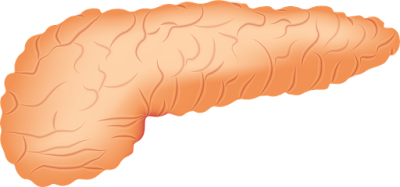Colon cancer prevention
Prevention of colon cancer
20-30% of all malignant tumors depends on the diet. Colorectal cancer belong to this group. It is sufficient to eliminate errors diet to reduce the risk.Prevention of colon cancer
1. Replace saturated fats with unsaturated. Food fat increases bile production, which is required for its cleavage.Warning! If bile remains in the large intestine for a long time, it turns into a carcinogen apcholinowy acid. Red meat eat right up to 2 times a month, and reach for poultry and fish. Use oils rich in unsaturated fatty acids omega-3 (canola, flaxseed, olive oil).
2. Eat 4 servings of vegetables (including legumes) and one portion of fruit. They are the source of the substance to prevent the development of cancer: phenols, indoles, flavones, kuminy, isothiocyanates.
Warning! They include the fiber, which acts as a vacuum cleaner, sweeping from the gut, what unnecessary and harmful. It prevents colon cancer, because it reduces the time called. intestinal transit and reduces the mucosal contact with toxic substances. The best sources of fiber are wheat bran, legumes, dried apricots, prunes, dates, nuts.
3. Eat which contain calcium (dairy, fish), as this element inhibits epithelial cell proliferation in the colon. When they multiply at a rapid pace, increasing the risk of cancer.
4. Avoid the use of alcohol. He raises the risk of colon cancer, and the most treacherous drink is beer, which contains nitrosamines - carcinogenic ingredients that are activated in the gut.
5. Take care of the bacterial flora. Probiotics have anti-cancer properties, including reduce the carcinogenic processes related to the action of bile in the intestine.
The symptoms of colon cancer
Colorectal cancer for many years may not cause any symptoms, but there are signs, however, that should you bother.Report to your doctor when you tease:
- constipation (when the cancer develops, reduced internal cross-section of the intestine which causes a lot of problems with defecation);
- change the rhythm of bowel movements, which can not be explained by changes in diet or lifestyle;
- diarrhea with passing large quantities of gases, which persist for many weeks;
- pain in the lower abdomen and lower back discomfort, nausea, vomiting and difficulty in swallowing;
- sensation of incomplete evacuation;
- traces of blood on paper or underwear, rectal bleeding (not caused by the rupture of hemorrhoids).
Tests detect colorectal cancer
1. The so-called. digital rectal examination. The doctor put a finger to touch the bowel and examine the lower part of the rectum. In this way, can recognize a substantial proportion of tumors located in this part of the intestine.
2. Examination of carcinoembryonic antigen (CEA) in the blood. This study determined the concentration of marker, typical for the development of colon cancer. The survey is used primarily in patients after treatment, because it helps to determine whether there has been no relapse.
3. Study the presence of occult blood in the stool (every year). Recent studies use rules immunochemistry, for example. Test FIT OC-SENSOR. It does not require special preparation of the patient or the principles of diet. The test is automated, so that the risk of error reduced to the minimum.
4. Contrast enema colon. During the test, the colon is introduced air and the contrast agent and X-ray performed.
5. Histopathological examination. Under the microscope they are examined segments of the colon, which was taken during the colonoscopy. This study confirm or rule out colon cancer.
6. Morphology. If during this study is found anemia, it may indicate a developing tumor.


Comments
Post a Comment